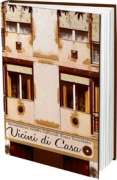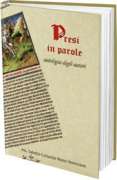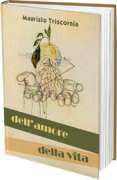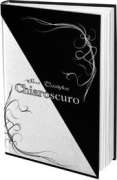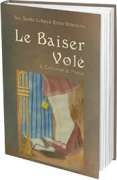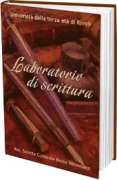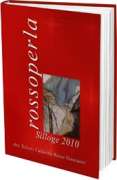English Edition Part Seven
. In her memories she was back at the time she started the journey of her new life, the night after her father had deprived her of her virginity.
On that night she lost not only her virtue but also the esteem of her family. The morning after, they looked at her as the one who was responsible. Her own mother couldn’t have a single word to support her. After all she had been raped because she had taken her mother place. Poor Maria had enough of her own worries without adding more.
The following morning, when the others had gone Lucia’s mother asked her to dress up properly.
“After what’s happen last night you can’t live in this house any longer. You have to go to be able to restore the family peace. You have disgraced me, and after what’s happen last night, you father will be after you day after day, do you understand that? It’s better for the quite living of all of us that you leave now, and remember, since the moment you are out from here never say a word of what has happen last night. For what I’m concern nothing, I said nothing has ever happened.”
Lucia didn’t comment she only nodded mechanically; she felt empty of emotions. She knew that would be the last time she would be allowed inside that house.
Lucia replaced her mother at the Vedovatos. In a short time she rose from the humble work in the barn to the kitchen, as the cook’s helper, and with this duty she became the one to serve dinner to Mr. Vedovato, on those nights he dined alone. One evening he was without glasses and asked Lucia, ‘Would you please read this note for me?’ He was surprised to find her literate. It was the beginning and from that day Mr. Vedovato more often asked Lucia to write his correspondence or to read the local news.
Mr. Vedovato, as many in those days, was an old Fascist. He belonged to the group that marched with Mussolini in the fatidic ‘March on Rome’ in October 1928, which took Mussolini’s to power and saw him became the undisputed leader of Italy.
But Mr. Vedovato friendship with Mussolini was rooted back at the time when ‘Il Duce’ was still an unknown school teacher at the local school in Tolmezzo, in the old days of 1908, where Mr. Vedovato lived, and well before he had traced down his political ideas of the Fascism.
During the war, Giacomo Vedovato retained the political prestige and power earned over the many years of dedication to the party and he became the undisputed political leader of the region.
It was under these capacities that he regularly invited for dinner, at his villa, a close group of fascism sympathizer as well as the army commanding officer of the region and was pragmatic, during those nights to exchange opinions and formulate future plans to manage properly the region in those difficult political events during the war.
It came like a surprise the orders dispatched by General Badoglio, the supreme army commander that called for the disbandment of the Italian Army in September1943 and the war took a different direction. After the initial euphoria, caused by such announcement, he proclaimed that war was over for Italy. In the radio message he categorically ordered the Army to break their ranks. For those Italians living above the front war line, and under German control, saw the country precipitated into chaos, soon after that announcement with the Germans taking a strong command of the territory.
Mussolini, imprisoned by Badoglio, was freed with the German’s help, and with their support he formed the new Republican Army. It was only a sham of power, masterly maneuverer by the Germans to give a form of legality to the new Italian Government.
The Germans imposed order and took control over the anarchy reigning in the territory, and capable to form a strong front in South Italy arresting the Anglo-American forces.
In the north of the country, the Carnia and Friuli region became incorporated into the German territory and jurisdiction with garrisons responsible to safeguard the logistical structure necessary to maintain viability for the equipment and arms to the front line.
Italians were under a strict dictatorial German rule. The disbanded Italian soldiers were ordered to regroup under Mussolini’s Republican Army, or else, work in war factories producing armaments for the Reich. The ones who refused the alternatives were interned in working camps in Germany.
This created the precedents for many Italians, in the autumn of 1943, to take refuge in the mountains and form the first groups of resistance to fight against the Fascism and their ally, the Germans.
In the cities the factory workers sympathized with the underground communist and socialist cells, and started to sabotage the vital productions.
The political turmoil of the time saw a few of Mr. Vedovato employees flee to the mountains to join the partisans. Mr. Vedovato tightly grouped the others around him only those who still sympathized for the Fascism and Lucia became one of them.
Difficult times had started in the region; with no one of the Italians knowing where was his own enemy and seeing many times brothers on opposite political fronts.
Lucia’s faith in the Fascism started to crumble seeing the disastrous consequences of the war around her. A curfew was imposed and at night the militia patrolled the streets in town. In the darker hours of the nights partisans descended from the woods into town to re-supply with the help of sympathizers, and on those occasions it wasn’t unusual the exchange of gunfire between the Fascist and the Partisans. In one of the first skirmish at night, a well know local young man, wearing the Italian uniform, but with the Green Partisan Scarf around his neck, lost his life. He became the symbol of martyrdom at the time and raised a loud outcry in town, and against the Fascist veto there was a mass attendance at his funeral. He was the first of many to follow the path of death, a bitter consequence of a futile war opposing brothers locked in their different political ideas.
In those events Lucia became aware the danger the Fascism represented in those last days of war and she formed her resolution to help those who fought for the freedom of her country.
One night she answered a gentle knot at her door. It was Marina, the Vedovato’s housekeeper. She whispered a few words asking help.
‘I need your help, Lucia. A young partisan had been wounded in a skirmish of fire between the Fascist and the group of partisans. We have to dress his wounds and hide him to save his life. We’ll hide him in the barn for a day or two till someone would take him safely away.’
It was the beginning of Lucia’s silent cooperation. From that evening a bond strengthened between them. She was the wife of a patriot operating in the area. Marina’s husband was in the resistance and her relationship with the partisan was a well-kept secret inside the Vedovatos, the stronger Fascist’s bastion in the region.
In town everybody thought that Marina’s husband lost his life in the Tripolitania Desert during the last disastrous African Campaign, where his armoured squadron was destroyed fighting a much stronger enemy.
He had been only wounded in that battle and in the chaos he returned unnoticed and found refuge in the mountains away from the Germans. He had soon become the leader of a group of partisans and was known with a nick name, ‘Il Guercio’, because of the eye he had lost fighting against the British. To keep secret his identity he let grow a shoulder length hair and a beard that changed his appearance.
~*~
In the early spring days of 1944 a new German Commandant had been appointed to the district. He soon was part of the guests at Mr. Vedovato weekend dinners.
He had a long experience in warfare, first on the European campaigns and finally assigned to the Panzers in the Afrikan Korp under Rommel’s command.
He was transferred to his new position after he was dismissed from a military hospital but still recovering from serious wounds in the last African offensives.
When he was transferred to this new position he thought that his duties would involve him mainly in police roles.
Reality was different and he found in front of him several groups of partisan skirmishing continually against the Germans and Fascist. He was completely new to this type of warfare, the guerrilla tactic of hit and run. He had in front of him a very volatile enemy capable of hiding in the forests above the villages in the valley. To fight them, he had to learn to think in the same way they did. He also had to find out where the rebels received the essential supplies to survive and fight and where their ammunitions and guns came from.
As the garrison commandant, it was his duty to gain information to facilitate his main job that was to keep viable the main routes to and from Germany for the easy flow of the supplies to the forces fighting on the south front.
. That was the main reason he accepted his first invitation to the Vedovato’s dinner. He wanted to gain this knowledge from the locals assembled there and create an accurate picture of the enemy fronting him. It was imperative for him to know his adversary tactics, where they sheltered and who help them. That knowledge would give him the advantage to strike back annihilating in this way the many advantages that they had now. He also needed to gain this essential information to plan for a future offensive in the area, forecasted already by his superiors for the incoming season. At that time the Germans would attack the partisan’s strongholds in the mountain and clear them away for ever.
- Blog di Carlo Gabbi
- 1981 letture

 Sostieni anche tu il nostro sito
Sostieni anche tu il nostro sito
 le nostre pubblicazioni
le nostre pubblicazioni 



